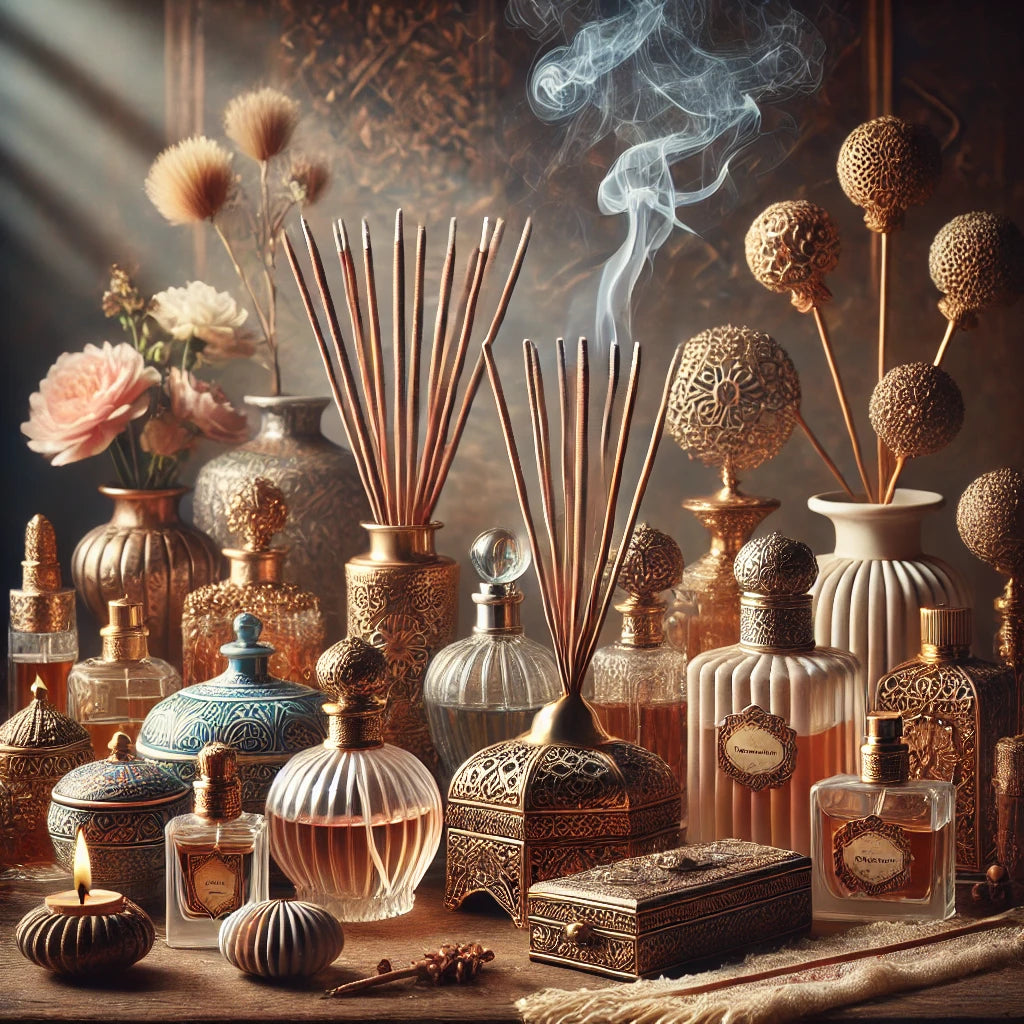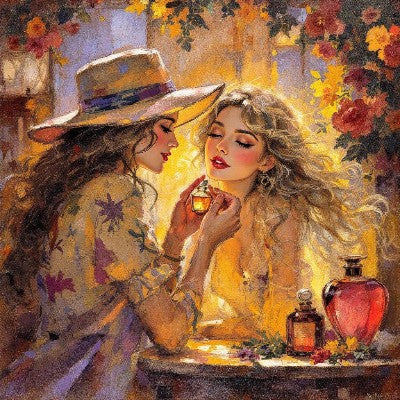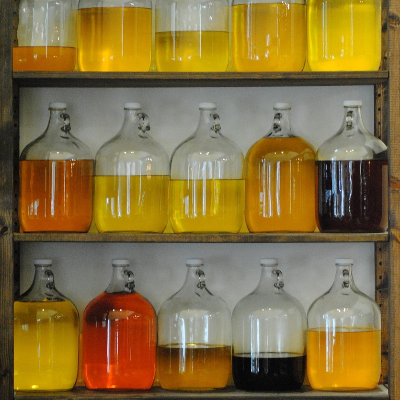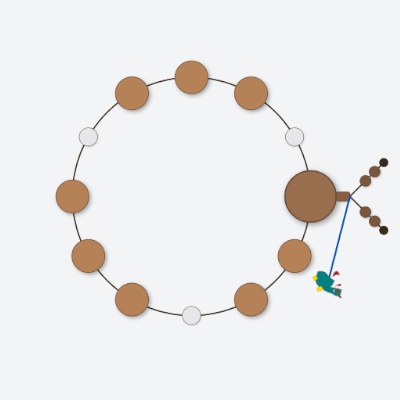Menu
-
-
F.A.Q
- How to identify genuine agarwood chip, natural or cultivated
- How to identify oil injection / absorption fake agarwood beads
- How to know if there are more than one oil in your oil
- How to make your wood bracelet or mala darker
- How to tell if an Agarwood bead sinks WITHOUT sinking it under water?
- How does back flow incense work and how do you burn it?
- Where to start if you don't know what agarwood is ?
- Why are you losing money if you buy seeds and plants?
- Which agarwood incense should I choose?
- Frequently Asked Questions
- Agarwood Related Articles
- Shipping
-
SHOP - Agarwood
-
SHOP - Other Fragrant Wood
-
SHOP - Incense Holder and Burner
-
- FREE Oud Oil guide
- Testimonials
- "Why did you buy this?"
- Contact us
- About Us
- +61430284329
- Login
-
English


Which One Of These Perfume Questions Do You Want To Know?- An Interview With Teone, a Local Artisanal Natural Perfumer
November 06, 2019 5 min read
An Exploration into Botanical Scent Creation
Before sharing the interview, I have the privilege of asking Teone, the creator of TRNP, some questions. There are no right or wrong answers, only personal perspectives that you may or may not agree with. Some of you might find these answers resonate with you.
A bit of background: Three years ago, when Teone first contacted me, I was excited to learn she was an artisan perfumer. Teone creates small batches of high-quality natural perfumes, and it was a privilege to meet her.
Working solely with plant essences requires excellent skills and experience. Personally, I do not mind synthetics as long as they are safe for skin and environmentally friendly. With this in mind, I commissioned Jonathon from Damask Perfume to formulate our first Oud perfume, Glory of The Pain. It contains synthetic ingredients that are safe and tested on our skin. Working with synthetics is a different skill set, which I respect and appreciate.
If you are open-minded and curious about botanical perfumery, you have come to the right place. I have tried many of Teone's creations, and I understand why people love her perfumes. We talked and decided to collaborate. Enjoy reading.
The Interview
Teone: I would like to welcome you to my studio. We have talked about getting together for a long time. Thank you for finally being here.
Trent: Thank you, it is an honour to be here. I have wanted to do this for a long time, so let us get started.
Teone: Great, thank you. How is your tea?
Trent: It is good.
Teone: Alright, I have lots of questions, and you have some questions too. Let us go back and forth.
Trent: I have questions that I think many people want to know, so let us start with the most frequently asked question: "Why natural perfume?"
Teone: Why? I love plant essences. When I was stressed or had minor illnesses, aromatherapy was essential. Living in a remote area, I relied on it for small things like burns, cuts, and sore throats. Aromatherapy was a crucial part of raising my family.
A few years ago, during challenging mental work, I became addicted to perfume. I bought many perfumes but quickly got bored with them. I started blending essential oils, which are stubborn and moody, but when they harmonise, they are unmatched by synthetics. Plant essences contain complex molecules that synthetics lack. This complexity is what makes natural perfumes so captivating.
Trent: When you say essential oils are stubborn, can you mix three essential oils with alcohol and call it a perfume?
Teone: If you like it, it is your perfume. There is no secret trick. If you blend something pleasing to you, that is your perfume. If you want to please others, you need to understand their expectations. Perfume preferences vary widely, and what smells great to one person may not to another.
Trent: Interesting.
Teone: Traditional French perfumes used animalic ingredients like civet and musk, combined with floral scents. This created complex stories through scent. Nowadays, perfume does not define a person morally as it did in the past. Preferences have shifted, and everyone has their own taste.
Trent: I have been making perfumes featuring your Oud. Can you explain what Oud is?
Trent: Oud has an interesting story. The Aquilaria tree has little value initially. When injured, it produces agarwood as a defence mechanism. Only a small percentage of trees survive this process. The longer the infection, the better the quality of the agarwood. This makes Oud more expensive due to the time and effort involved in its production.
Teone: Thank you. Oud fascinates me because it is a resin that heals the tree. This self-healing process makes it precious and magical.
Trent: How do you know which essential oils are of good quality without lab tests?
Teone: It is a feeling, an instinct. Over time, you learn which suppliers provide the best oils. Each batch can vary, so you need to develop a sense for quality. Sometimes, you need to let the oils settle before assessing them. Trust in suppliers builds over time through trial and error.
Teone: Why are natural perfumes more expensive? For example, synthetic vanilla is cheap and plentiful, while real vanilla comes from beans and requires a lot of labour and resources. Natural ingredients are complex and unique, making them more valuable.
Trent: So, it is about the supplier's trust and the complexity of the natural ingredients.
Teone: Yes, and also the tradition and knowledge passed down through generations. Supporting this industry helps preserve these traditions.
Trent: Why should we use natural ingredients if synthetics are cheaper and less environmentally damaging?
Teone: It is a matter of taste. I prefer natural perfumes because of their complexity and the connection to nature. Synthetics make sense economically, but I find them boring. Natural ingredients offer a rich and evolving scent experience.
Trent: Natural perfumes also support local economies and provide a unique, human touch.
Teone: Absolutely. It is about preserving the knowledge and expertise of those who have been doing this for generations. Supporting natural perfumery helps keep these traditions alive.
Trent: Which Oud do you love wearing neat?
Trent: I love Evergreen because it evolves over time. It starts leathery and spicy, then becomes sweet, and finally dries down to a classic Oud scent. Many people also like Misty Forest for its unique profile.
Teone: I love your Evergreen Superior for its crisp and lovely scent.
Trent: Thank you. Can you tell us about the Hindi Oud you use?
Teone: I use Hindi Oud from Assam, which has a distinctive leathery scent. It works beautifully with the Oud I get from you. Some ingredients are challenging to work with, but they can create unique and sophisticated perfumes.
Trent: Why is there a price difference between perfumes?
Teone: Natural perfumes are more expensive due to the labour-intensive process of growing, harvesting, and distilling the ingredients. Synthetics are cheaper and more stable, but they lack the complexity and richness of natural ingredients.
Teone: Supporting natural perfumery helps preserve traditions and supports local economies. It is a luxury and a privilege to have access to real, high-quality ingredients.
Before showing you the interview, it is a privilege to ask Teone, the creator of TRNP, some of the questions. There are no right or wrong answers but a personal perspective which some of you may or may not agree with. In the meantime, some may find these answers resonated with you.
Leave a comment
Comments will be approved before showing up.


